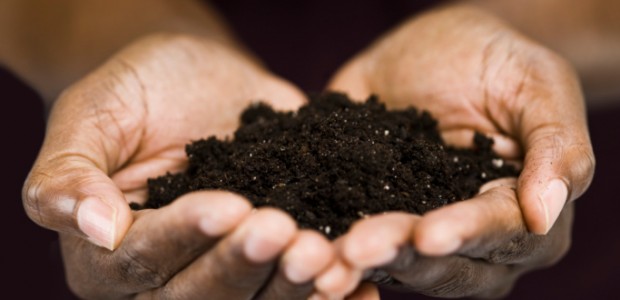Good gardens begin with great soil. While soil testing and appropriate fertilizer application go a long way to help plants flourish and produce a bountiful harvest, it isn’t always enough to only worry about nutrient levels. Great soil is fluffy, resists compaction, and lets water drain away at just the right pace to prevent wet roots or thirsty plants. If your soil is heavy and hard or too light and loose, adding the right organic amendments will improve its texture and the health of the plants growing in it.
Compost
Homemade compost is an ideal soil amendment. It’s locally produced to reduce your buying footprint, contains a rich blend of nutrients, and features bacteria your plants need to process those nutrients. A spinning bin can help you make compost in as little as three months out of food scraps and yard trimmings.
Leaf Mold
When leaves in the forest break down, they form a rich black mixture known as leaf mold. This blend creates pockets in the soil that let air and water through. If you have thick clay that acts like concrete after a rainstorm, a few giant piles of leaf mold can make an immediate difference in the texture. It’s also great for sandy soils because the particles act like tiny sponges to hold water where plant roots need it the most. Heavy duty black leaf bags allow you to turn your raked up piles into the decomposed format in one summer, or you can find it at most garden centers.
Aged Manure
Fresh manure is a no-no in the garden because nutrient levels are so high they hurt plants. Once that manure gets a chance to age and compost, it becomes a fertilizer and soil amendment all in one. Keep in mind that it acts as a nitrogen source for plants, so cut back on any other source of the nutrient when you add it to the soil.
Decomposed Materials
Finally, don’t forget about decomposed sawdust, straw, and wood chips. These materials suck nitrogen out of the soil when fresh, but become inert and ideal for loosening the soil after half a year or so of aging. The materials should crumble when rolled in the hand or you risk depleting your garden during the growing season. They all act similarly to leaf mold, but are often easier to find for free.
